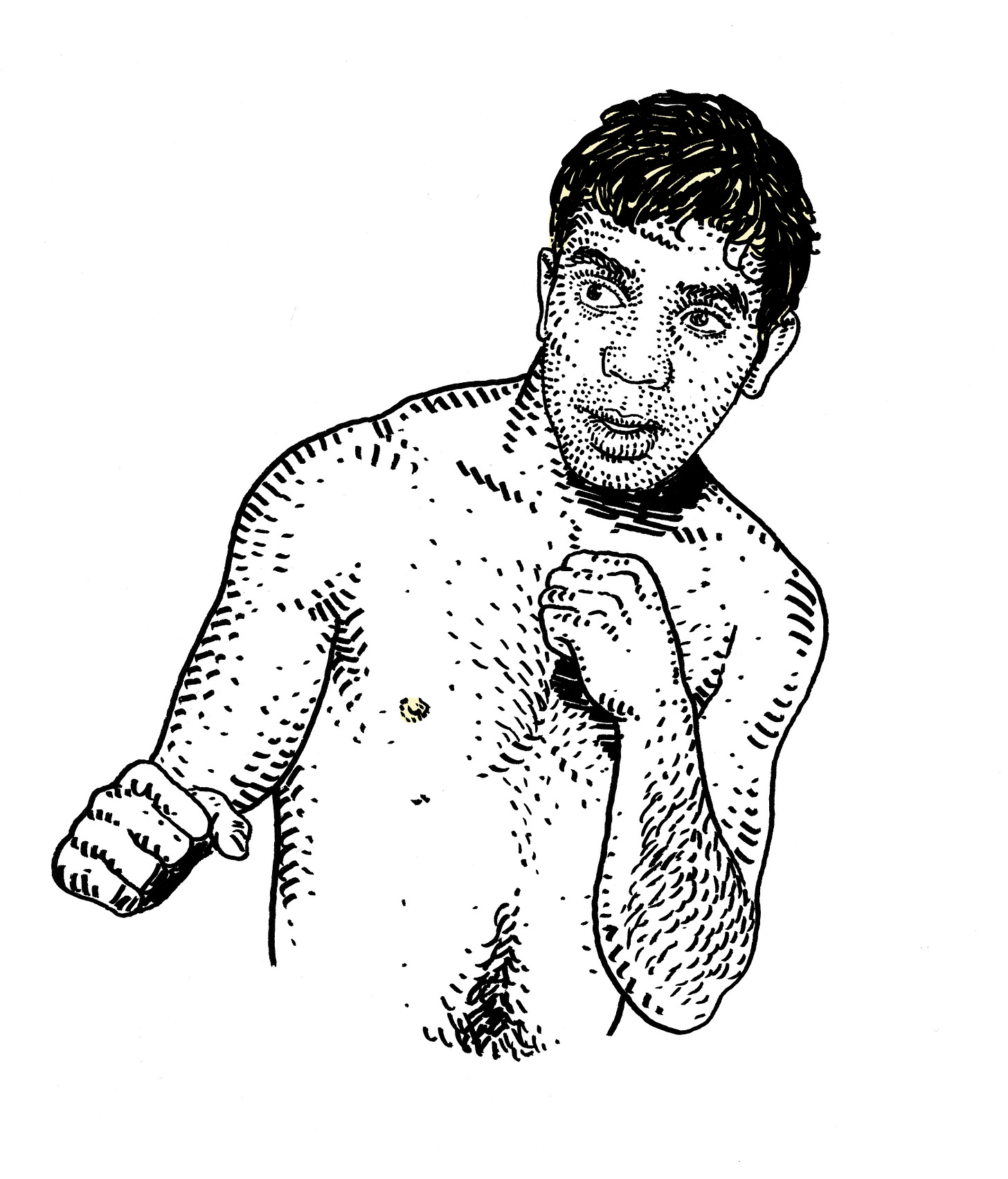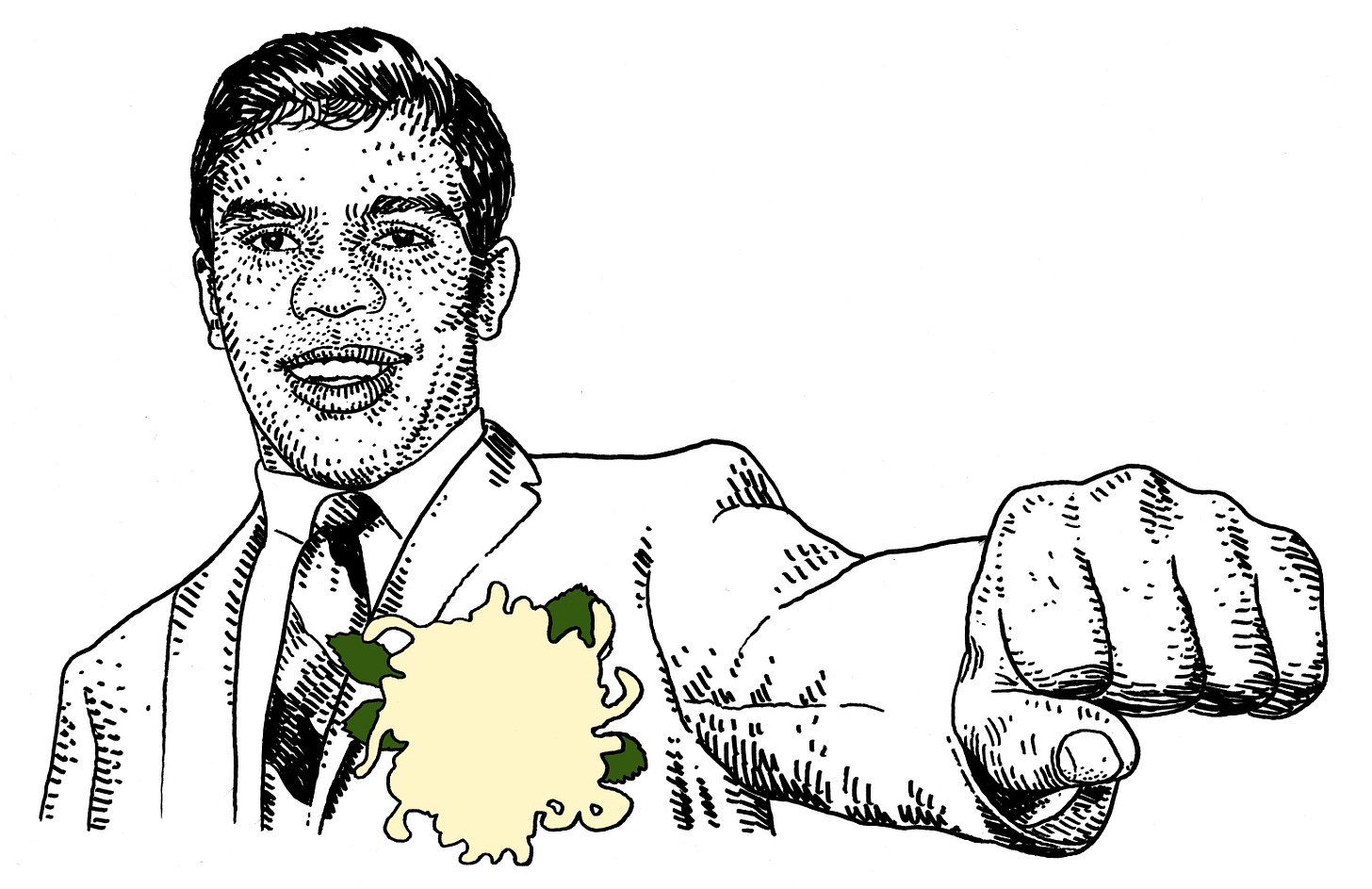The People Cared About Lionel Rose
In 1968, the first Indigenous Australian to win a world boxing title returned to Melbourne a hero.
Welcome to Sports Stories. As we enter our third calendar year of existence, Adam and I want to thank the folks who have signed up for paid subscriptions to our newsletter. Your support goes a long way toward our making these as special as we can every week.
If you’re still thinking about signing up, this can also be a quick reminder that subscriptions start at just $5 a month -- and that we’re sending our first 100 subscribers a complete set of 5 custom postcards featuring Adam’s original art. This will always be a free publication but we’re deeply appreciative when readers can chip in, whether by signing up for paid subscriptions or spreading the word to their friends, families, and strangers on the internet.
Lionel Rose could see the crowd from his window as the plane descended toward Melbourne. The buildings and trees came into focus and so did the sprawl of human life filling the streets. It was as if all of Australia was waiting. The crowd snaked for miles from the airport all the way to the city center.
It was 1968 and Lionel Rose was just shy of his twentieth birthday. He was a trim and handsome young man, with a sweep of black hair and a smile that was all innocence. He had departed from this very airport as a promising young boxer and now he was returning as something else entirely; something even he did not yet fully understand. Legend has it that he asked the flight attendant if the Beatles were somewhere on the plane.
“I didn’t think so many people cared,” he said.
It had all happened so quickly. It had all been so impossible. Rose came from a long and proud boxing tradition among Indigenous Australians; as a boy, he had been mentored by an older pro named George Bracken, who let him hang around in his corners during fights. Bracken got his own hard start by boxing in tent shows that roamed the countryside.
‘Boxing is the only place where an Aboriginal might be treated as an equal,” Bracken had said. “Because with our people we’ve got to start from behind the eight ball.”
Not that Lionel Rose needed an education on oppression and hard times. He grew up outside of Melbourne without running water or electricity. His grandmother used to hitchhike with him into the city so they could see the fights. Soon Rose took up boxing himself and caught on with a trainer there named Jack Rennie. When he was 15 years old, Rose was on the verge of the biggest fight of his life: the national amateur flyweight title. Two days before the fight, his father died. Rose went straight from the funeral to the fight -- and then won.
Rose was not a devastating puncher, but he was fast and graceful and he had perfect instincts. He was hard to connect with -- and hard to hurt even when you did. But more than anything, what made Lionel Rose a champion was his demeanor. There was nothing that scared him, nothing that worried him.
He worked in a factory and at a cafe and trained in Jack Rennie’s gym and moved into Rennie’s home. He turned pro at 16 and fought his way across Australia until one night Rennie got a call from a promoter in Japan that woke the entire household. Would Lionel Rose like to go to Tokyo and box for the bantamweight championship of the world?
It had only been six years since Indigenous Australians like Lionel Rose were officially granted the right to vote. It had only been a few months since the country voted by referendum to fully include its Aboriginal and Torres Straight Islander people in future census results.
Now here was Lionel Rose, standing in the ring in Budokan, Tokyo’s famed indoor arena, a place the Beatles actually had played. Across from him was one of the great Bantamweights of all time: Masahiko Harada, better known as Fighting Harada. Fighting was his name because he was brutal and relentless in the ring.
For 15 rounds, Fighting Harada tried to chase down the teenager. But Rose seemed to see the punches coming. He countered and he bounced and he won in a unanimous decision. The mad celebration in the ring afterward sent Rose to the mat for the only time in the entire fight, along with this trainer Rennie, tumbling in a joyous hug.
The crowd was there for him. The smiling teenager with the shiny hair. Legend has it that there were 250,000 people on the streets in Melbourne that day. More people than had come for the Beatles or the Queen of England or President Lyndon B. Johnson. Lionel Rose walked down the steps of the DC-9 and into a waiting convertible. He rode through the city a champion of the world -- the first Indigenous Australian to claim that honor -- and a national hero.
In the years to come, Rose would defend his title and then lose it. He would be named Australian of the Year and honored as a Member of the British Empire. He would meet Elvis Presley in California, then come home to Australia and release a couple of country albums. His first single went to number one. He would retire and unretire. He would endure the hard life of many ex-fighters: the drugs, the alcohol, the long days and nights. The betrayal of his body.
“I didn’t think so many people cared,” he had said. But they did.
Related Reading:
There’s a ton out there on Lionel Rose, who passed away in 2011, four years after suffering a debilitating stroke. At the height of his fame, he wrote a book, which is not easy to track down -- at least not in the United States. In the early nineties, he was the subject of a dramatized television miniseries in Australia. Toward the end of his life, he was also the subject of a piercing documentary called Lionel which you can stream here for $4.50. The film depicts Rose in all his power and in all his frailty as an older man, placing off-track bets on horses and reckoning with his own legacy.
Two writeups on Rose I greatly enjoyed were this one from Kyle McLachlan at The Fight Site (he ranks Rose as the no. 10 bantamweight of all time); and this one from the legendary Australian boxing writer Grantlee Kieza.
I would also highly recommend this podcast from the Australian Broadcasting Company on the history of Indigenous Australians in boxing. It’s honestly one of the most fascinating things I’ve listened to in a long time.
Finally, here’s Lionel Rose and a cast of characters including Fighting Harada, his trainer Jack Rennie, and his mentor George Bracken, on a TV show called “This is Your Life:”




